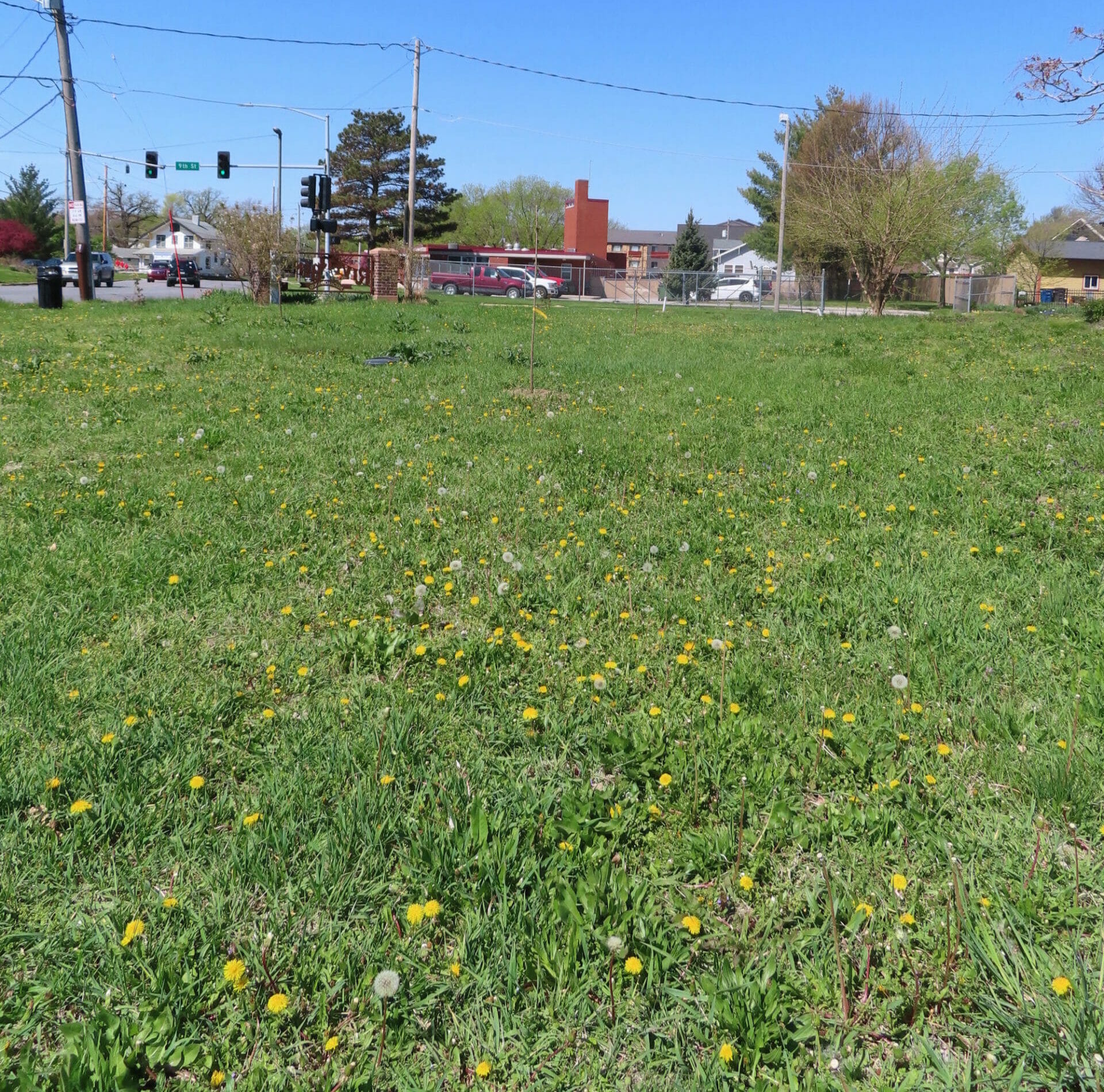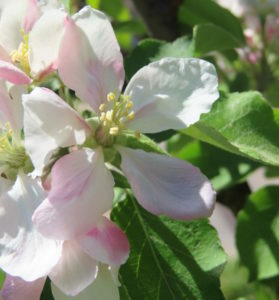Restoring Beneficial Insects to Iowa Urban Farmscapes
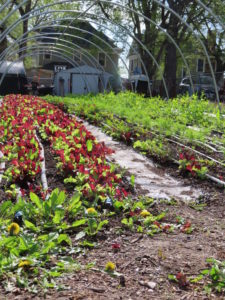
Rows of organic vegetables grow next to Monika’s home in central Des Moines. A former pocket park, Monika has converted the lot to an organic vegetable farm with many of proceeds of her labor going to food charity.
Sweet Tooth Farm, owned and operated by Monika Owczarski, is nestled between two historic homes in the heart of Des Moines. Once a pocket park owned by the city, Monika has converted it into a productive and pollinator-friendly urban garden.
Sweet Tooth Farm specializes in growing organic vegetables that Monika stocks in curbside refrigerators, open and free to the public, at various locations in Des Moines. “I sincerely believe that everyone should have access to good, healthy food. There is more than enough to feed everyone, and these fridges help in that regard.”
This May, Monika recently treated PFI habitat staff, along with the Xerces Society, to a tour of her property, pointing out early season crops, such as lettuce and herbs, while also discussing the future of promoting pollinator health and habitat on urban farms such as hers and across Iowa.
“We are reliant on pollinators for our very existence. Taking care of them is really taking care of ourselves. I’ve heard several times that one out of every three bites of food depend on pollinators, and I want to make sure that food will always be available, now and in the future.”
Sweet Tooth Farm has recently begun to work with both Practical Farmers of Iowa and the Xerces Society on a recently established cost-share program that will aid in the installation and maintenance of habitat for beneficial insects on urban and suburban farms within the state of Iowa.
“I’m excited to work with these organizations to dedicate more space to pollinators on my farm and my upcoming locations as well.”
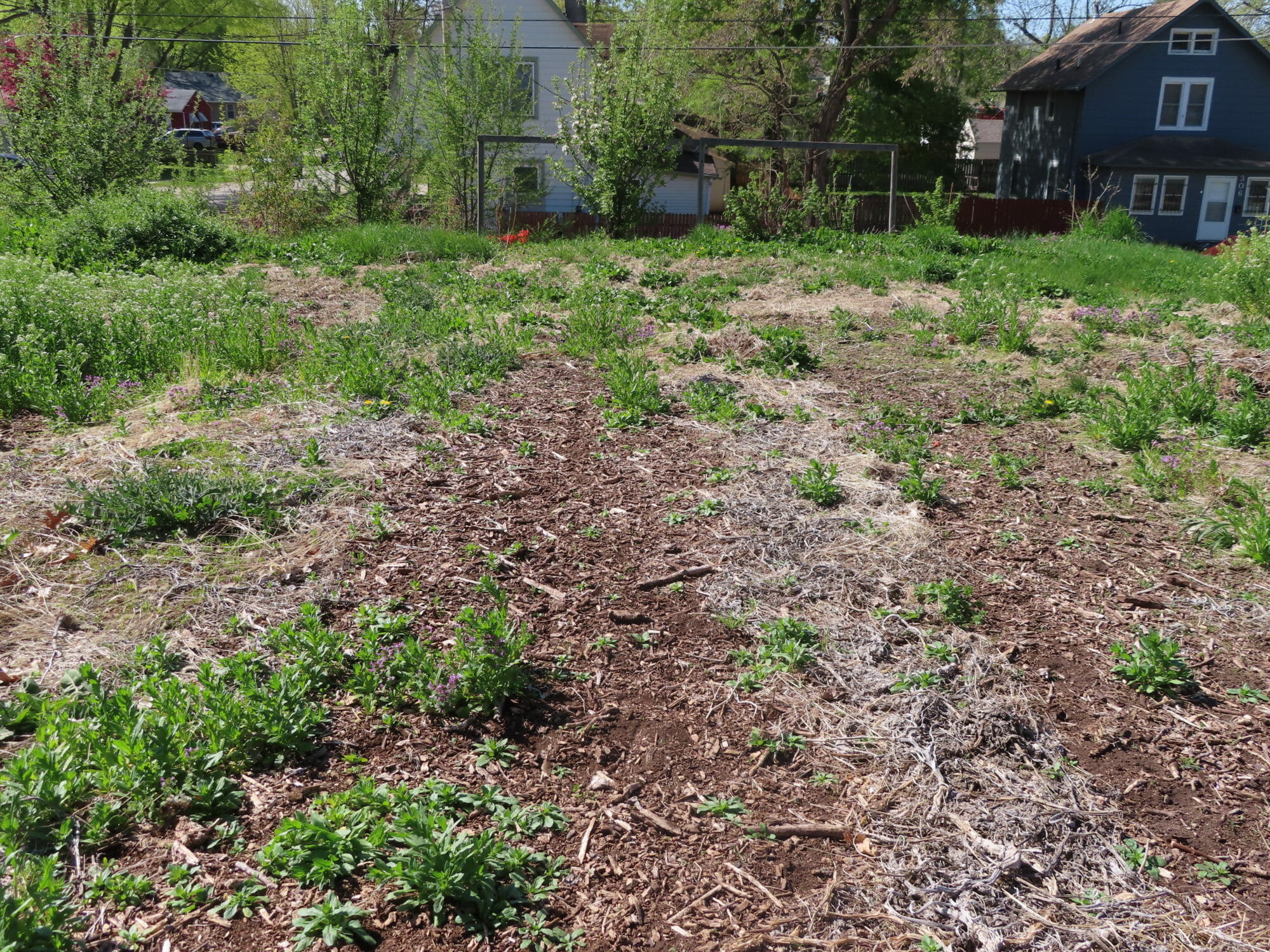
Monika has begun work with PFI and Xerces Society, along with a grant from Tito’s, to begin establishing crops and habitat for pollinators on this small acreage in Des Moines.
In addition to the land next to her home, Monika is also preparing two other locations for production. She recently received a grant from Tito’s Vodka to convert a new lot to an urban farm that will host more organic vegetables and several varieties of fruit trees. It is the first urban farm in Iowa to receive the grant.
“I’m so excited and honored to have Tito’s helping with getting this lot in shape. They reached out to me, and I was just so grateful to receive the help and support from them, as well as PFI and Xerces; all these great organizations that are promoting urban farm habitat. I’m hoping to use the funds to remove a dead tree from the lot and get pollinator habitat established in the lot, alongside vegetable production.”
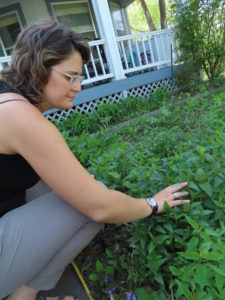
Monika Owczarski shows off some of her pollinator habitat in place of a lawn in front of her historic Des Moines home.
Around the farm by her home is an assortment of pollinator-friendly flora, including aster, lemon mint, sage and zinnias. “I planted these not only by the front area of the house but in the lot where the vegetables are. I know it’s paying off. In one day, I counted 22 bumblebees just zooming around! They’re very happy here and will be happier with the new establishments.”
With the help of PFI and Xerces, Monika plans to also establish pollinator habitat on the two remaining lots not yet under production. “First these areas need to be mowed. We’ll put the blade on the tractor and scrape it down. There is some major prep work to do first, but my wish list for pollinator nectar sources is very targeted to those species that can provide the most bang for the buck in such a small operation.”
Monika plans to install several varieties of grasses and sedges such as little bluestem, rough dropseed and fox sedge. Grasses and sedges provide edge of field resting and hiding places for not only pollinators but other insects and smaller animals. Several varieties of forbs will be distributed throughout all three locations and include common yarrow, purple prairie coneflower, hoary vervain and several species of milkweed.
“In total, there will be 25 species of pollinator friendly plants in our farm plots. As urban farmers, we don’t always have the space to install and maintain large pollinator plots like prairie strips, but urban farms are like an oasis in the city, and even a small operation can make a big difference regarding such important species. We depend on pollinators for food, and they are now depending on us as well.”
For more information on how urban farms benefit pollinators, click here.

